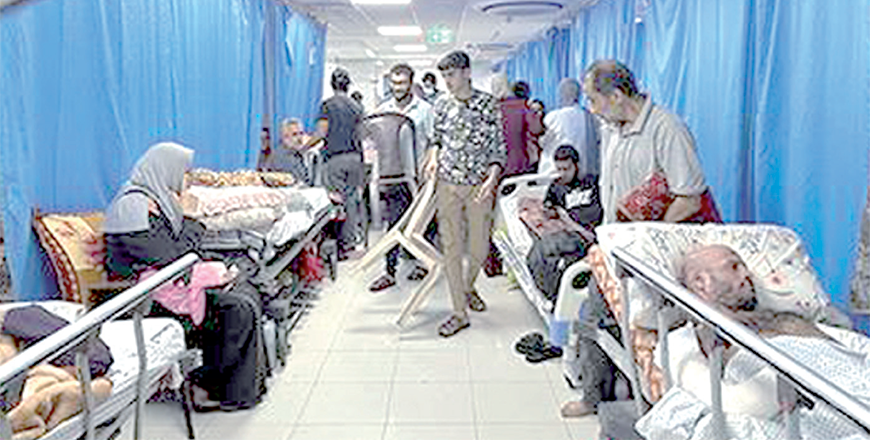You are here
‘Medical sector of Gaza not collapsing but has collapsed’
By JT - Feb 20,2024 - Last updated at Feb 20,2024

The doctor Mohammad Amro was volunteering in a main hospital in war torn Gaza and said, ‘the situation there is catastrophic (AFP photo)
AMMAN — “The Medical Sector in Gaza is not on the verge of collapse anymore, it has already collapsed,” a Jordanian doctor who recently returned from Gaza said.
The doctor Mohammad Amro was volunteering in a main hospital in war torn Gaza and said,”The situation there is catastrophic.”
During a recent interview with Al Rai Arabic daily, he said that the hospitals in the northern and central Gaza Strip have been completely evacuated, leaving only a few functioning in the southern region, including the European Gaza field hospitals, as well as some small hospitals, representing the last hope for patients.
“Many patients were forced to walk to the hospital due to the lack of functioning ambulances,” he added.
Amro said that the health disaster in Gaza is represented by a shortage of all types of medications for chronic diseases such as diabetes, hypertension, kidney issues, and insulin for diabetic patients.
Regarding kidney transplant patients, he said that critical immune-suppressant drugs are absent in the region, putting patients at risk of transplant failure and slow, agonising death.
“The Jordanian government is addressing the urgent need for these drugs.”
For the 50,000 diabetes patients, including 10,000 children, insulin shortages in hospitals pose a similar challenge, Amro said, giving a case of a pregnant woman who suffered a diabetic shock leading to her death, emphasising the severe complications of uncontrolled diabetes.
Amro said that the need for antibiotics are significant due to severe chest infections caused by cold weather and the absence of proper heating facilities.
He said that amputation cases have significantly increased, posing both social and health challenges for individuals, adding that these patients require specialised care, such as physiotherapy and natural therapy so that they can continue their lives without a relapse in their health condition.
Amro said that children born prematurely face ongoing challenges due to the limited availability of incubators, insufficient specialists and overcrowded facilities.
Related Articles
Obesity surgery may keep diabetes in remission even after 15 years in some patients, a Swedish study suggests.
PHILADELPHIA — Sitting on his bed at Children’s Hospital of Philadelphia, the first child in the world to receive a double hand transplant t
AMMAN — Organ donations from brain dead patients and the living cover between 1 and 25 per cent of overall transplant needs in the Kingdom,















